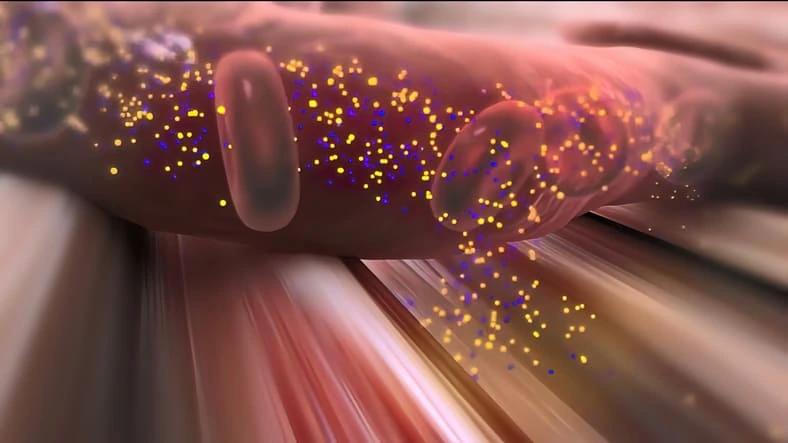KEY TAKEAWAYS
- The B-TREUH phase II trial aimed to determine the efficacy of T3 in place of T4 as a treatment for hypothyroidism in breast cancer pts.
- The primary endpoint was PFS. Secondary endpoints included the prevalence of hypothyroidism, OS, QoL, and the time to achieve euthyroid hypothyroxinemia.
- The study found the T3 was well tolerated with no serious side effects and showed promising PFS in heavily pretreated pts.
Thyroid abnormalities are common in breast cancer patients(pts) Triiodothyronine (T4), the most common treatment for hypothyroidism, can promote cancer growth, while T3 is less oncogenic. Researchers aimed to determine the efficacy of T3 in place of T4 as a treatment for hypothyroidism in breast cancer pts.
Eligible participants were adults with metastatic breast cancer on active treatment, life expectancy > 3 months, and hypothyroidism on T4 with normal TSH. They switched from T4 to T3 after a washout period, adjusting the T3 dose to maintain free T4 levels below 50% of the normal range. The treatment lasted 9 months with a 12-month follow-up. The primary endpoint was progression-free survival (PFS), while secondary objectives included assessing hypothyroidism prevalence, overall survival (OS), quality of life (QoL), and time to achieve euthyroid hypothyroxinemia.
The study terminated prematurely due to the pandemic and the PI and Sub-I relocation. Seven female pts from a community oncology practice enrolled between March 2019 and March 2022. Their metastatic breast cancer duration ranged from 7 to 223 months (average 62 months). At 9 months, 5 out of 7 pts (71%) had PFS. At 12 months (calculated for 6 patients due to early study closure), 4 out of 6 (67%) had PFS. At 9 months, OS was 6 out of 7 (85%), with 1 patient succumbing to disease progression. The prevalence of hypothyroidism was 21% (26 out of 126). Euthyroid hypothyroxinemia was achieved in all pts, on average, in 59.6 days. None of the 14 serious adverse events(AEs) were attributed to T3. QoL scores (FACT-B) on T4 vs. T3 showed no statistically significant difference.
Source: https://ascopubs.org/doi/abs/10.1200/JCO.2023.41.16_suppl.e13111
Clinical Trial: https://classic.clinicaltrials.gov/ct2/show/NCT03787303
Shruti Trehan, Suzan S. Cheng, Anisha Rawal, Mary Amos, Kathleen Collins, and Aleck Hercbergs. DOI: 10.1200/JCO.2023.41.16_suppl.e13111 Journal of Clinical Oncology 41, no. 16_suppl (June 01, 2023) e13111-e13111.



